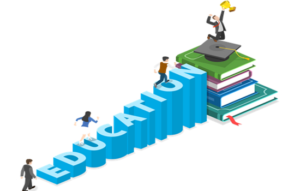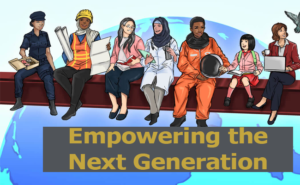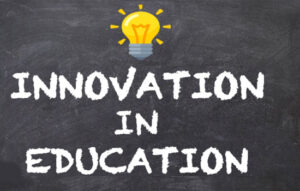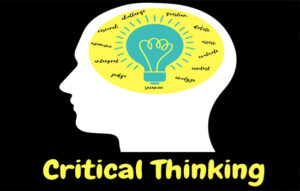by Site Developer | Nov 26, 2023 | Unlocking Success
Unlocking Success: Study Habits Every High School Student Should Know
High school is a crucial period in a student’s life, laying the foundation for future academic and professional success. Developing effective study habits is key to navigating the challenges of higher secondary education. In this guide, we’ll explore a range of study habits that can unlock success for every high school student.
🎖️Create a Dedicated Study Space
One of the first steps toward academic success is establishing a dedicated study space. This space should be quiet, free from distractions, and well-lit. Having a designated area for studying helps signal to your brain that it’s time to focus, making it easier to concentrate on your work.
🎖️Set Clear Goals and Prioritize
Goal-setting is a powerful tool for success. Outline both short-term and long-term goals for your studies. Break them down into smaller, manageable tasks, and prioritize them based on deadlines and importance. This will give your study sessions purpose and direction.
🎖️Develop a Consistent Routine
Consistency is key when it comes to studying. Establish a daily routine that includes dedicated study time. Whether it’s an hour before dinner or early morning sessions, sticking to a consistent schedule helps make studying a habit rather than a chore.
🎖️Take Effective Notes
Note-taking is a skill that can significantly impact your understanding of a subject. Develop a system that works for you, whether it’s traditional handwritten notes, digital notes, or a combination of both. Review and organize your notes regularly to reinforce your understanding of the material.
🎖️Utilize Different Learning Resources
High school curricula often involve various learning materials. Take advantage of textbooks, online resources, videos, and other supplementary materials. Diversifying your study materials can provide different perspectives and enhance your understanding of complex topics.
🎖️Practice Active Learning Techniques
Passive learning, like simply reading or listening to lectures, may not be as effective as active learning. Engage with the material by asking questions, discussing concepts with classmates, and teaching the material to someone else. These activities reinforce your understanding and improve retention.
🎖️Master Time Management Skills
High school students often juggle multiple responsibilities, from coursework to extracurricular activities. Learning to manage your time effectively is crucial. Use tools like planners or digital apps to organize tasks and allocate time for studying, completing assignments, and relaxation.
🎖️Take Breaks Strategically
While studying is essential, so is taking breaks. Breaks help prevent burnout and improve overall focus. Use techniques like the Pomodoro method, where you work for a set period (e.g., 25 minutes) and then take a short break. This approach can enhance productivity and prevent mental fatigue.
🎖️Seek Help When Needed
If you’re struggling with a particular subject or concept, don’t hesitate to seek help. Whether it’s asking a teacher, collaborating with classmates, or hiring a tutor, understanding that it’s okay to ask for assistance is a crucial aspect of successful learning.
🎖️Prioritize Health and Well-being
Success in high school isn’t just about academics; it’s also about overall well-being. Ensure you get enough sleep, maintain a healthy diet, and engage in physical activity. A healthy body and mind are better equipped to handle the challenges of high school life.
In conclusion, unlocking success in high school involves adopting effective study habits and incorporating them into your daily routine. From creating a dedicated study space to prioritizing health and well-being, these habits can make a significant difference in your academic journey. Experiment with different strategies, find what works best for you, and watch as your success unfolds.
by Site Developer | Oct 8, 2023 | Tips and Tricks
Higher secondary school, also known as high school, is a critical phase in a student’s academic journey. It’s a time when students are preparing for the next big step in their lives, whether that’s college, vocational training, or entering the workforce. However, high school can be challenging for many students. The pressure to excel academically, juggle extracurricular activities, and make important decisions about the future can be overwhelming. In this blog post, we’ll discuss some valuable tips and tricks to help students navigate the challenges of higher secondary school successfully.
✏️Set Clear Goals
One of the first steps to success in high school is setting clear, achievable goals. Think about what you want to achieve academically, socially, and personally during these years. Do you want to maintain a certain GPA, participate in specific extracurricular activities, or develop specific skills? Setting goals will give you direction and motivation.
✏️Create a Study Schedule
High school coursework can be demanding, and effective time management is crucial. Create a study schedule that includes dedicated time for each subject and stick to it. Avoid cramming the night before exams by spreading your study sessions over several days.
✏️Seek Help When Needed
Don’t hesitate to ask for help if you’re struggling with a particular subject or topic. Your teachers, tutors, and classmates can provide valuable assistance. Remember, seeking help is a sign of strength, not weakness.
✏️Join Extracurricular Activities
Participating in extracurricular activities can enhance your high school experience. Whether it’s joining a sports team, a club, or volunteering, these activities can help you build valuable skills, make friends, and even improve your college applications.
✏️Take Care of Your Health
Good physical and mental health is essential for success in high school. Make sure you get enough sleep, eat a balanced diet, and exercise regularly. Manage stress through relaxation techniques, such as meditation or yoga.
✏️ Stay Organized
High school life can get chaotic with assignments, exams, and various activities. Invest in a planner or use digital tools to stay organized. Prioritize your tasks and deadlines to avoid last-minute rushes.
✏️Develop Effective Study Habits
Effective study habits are the key to academic success. Find out what study techniques work best for you, whether it’s creating flashcards, summarizing notes, or teaching the material to someone else. Consistency in your study habits is crucial.
✏️Plan for College or Career
High school is the time to start thinking about your future. Research different career paths, colleges, or vocational programs that interest you. Speak with your school counselor for guidance on college applications and scholarships.
✏️Build Relationships
High school is not just about academics; it’s also about building relationships. Make an effort to connect with your teachers, classmates, and mentors. These relationships can be valuable for personal and professional growth.
✏️ Stay Resilient
Challenges and setbacks are a part of life, and high school is no exception. When you face difficulties, remember to stay resilient. Learn from your mistakes, adapt, and keep moving forward.
Conclusion
High school can be a transformative period in your life, filled with opportunities and challenges. By setting clear goals, managing your time effectively, seeking help when needed, and taking care of your health, you can navigate these challenges successfully. Engage in extracurricular activities, develop effective study habits, plan for your future, and build relationships that will support you on your journey. And above all, stay resilient in the face of adversity. With determination and the right strategies, you can make the most of your higher secondary school years and set a strong foundation for your future endeavors.
Remember, your high school experience is not just about the destination; it’s also about the journey. Embrace the opportunities, learn from the challenges, and use these years to grow and discover your potential.
With these tips and tricks in mind, you’re well-equipped to navigate the challenges of higher secondary school and emerge as a successful and well-rounded individual.
by Site Developer | Sep 3, 2023 | From Good to Great
In the dynamic and competitive world we live in today, personal development is an essential aspect of a student’s journey through higher secondary school. It’s not just about acing exams or securing admission to a prestigious college anymore; it’s about transforming into well-rounded individuals who can thrive in various aspects of life. In this blog post, we will explore the importance of personal development during the higher secondary school years and provide valuable insights and tips on how students can go from being good to great.
↖️ Setting Clear Goals: One of the first steps in personal development is setting clear, achievable goals. Encourage students to identify their passions and interests. Whether it’s excelling in academics, sports, arts, or leadership roles, having a vision of what they want to achieve is crucial. Once the goals are set, they can break them down into smaller, manageable steps.
↖️ Time Management: Time management is a skill that can make a significant difference in a student’s journey from good to great. Teach them effective time management techniques, such as creating schedules, setting priorities, and eliminating distractions. This will enable them to balance their studies, extracurricular activities, and personal life efficiently.
↖️ Continuous Learning: Emphasize the importance of lifelong learning. Encourage students to explore new subjects and interests beyond the curriculum. Suggest books, online courses, and workshops that can broaden their knowledge and skillset. Developing a habit of continuous learning can give them a competitive edge in the long run.
↖️ Critical Thinking and Problem-Solving: Higher secondary school is an ideal time to cultivate critical thinking and problem-solving abilities. Encourage students to question, analyze, and evaluate information. Encourage debates and discussions that stimulate their intellectual curiosity. These skills are invaluable for success in both academics and life.
↖️ Communication Skills: Effective communication is a cornerstone of personal development. Encourage students to participate in public speaking, debates, and group discussions. This will boost their confidence and help them express their ideas clearly and persuasively. Good communication skills are essential for networking and building relationships in the future.
↖️ Emotional Intelligence: Teach students about the importance of emotional intelligence (EQ). Help them understand their emotions, empathize with others, and manage stress. EQ is vital for building meaningful relationships, resolving conflicts, and maintaining mental well-being.
↖️ Extracurricular Activities: Participation in extracurricular activities is a great way to develop skills and interests outside the classroom. Encourage students to join clubs, teams, or volunteer organizations. These experiences can teach teamwork, leadership, and time management.
↖️ Self-Care and Well-being: Personal development should not come at the cost of well-being. Teach students the importance of self-care, including getting enough sleep, eating well, and exercising regularly. A healthy body and mind are essential for achieving greatness.
↖️ Networking and Mentorship: Help students build a network of mentors and peers who can guide and support them in their personal development journey. Encourage them to seek advice from teachers, professionals, and successful individuals in their chosen fields.
↖️ Reflection and Adaptation: Finally, teach students the value of self-reflection. Encourage them to assess their progress regularly and adapt their strategies as needed. Personal development is an ongoing process, and the ability to adapt to changing circumstances is a vital skill.
Conclusion:
Higher secondary school is a critical phase in a student’s life where personal development can set the stage for future success. By setting clear goals, developing essential skills, and fostering a growth mindset, students can transition from being good to great. As educators and mentors, our role is to guide and support them on this transformative journey, empowering them to excel not just academically but in every aspect of life.

by Site Developer | Aug 27, 2023 | Importance of School Education
Education is often referred to as the great equalizer in society, and at its core, school education plays a pivotal role in shaping individuals and societies. It is the bedrock upon which future success is built. In this digital age, where information is at our fingertips, the significance of school education remains steadfast. Let’s delve into why school education is crucial and the far-reaching impact it has on individuals and communities.
✒️ Foundational Knowledge:
One of the primary purposes of school education is to provide students with a strong foundation of knowledge. It equips them with essential skills in subjects like mathematics, science, language arts, and social studies. This fundamental knowledge forms the basis for more advanced learning and is indispensable in various aspects of life, from problem-solving to making informed decisions.
✒️ Cognitive Development:
School education not only imparts information but also nurtures cognitive development. It challenges students to think critically, analyze situations, and develop problem-solving skills. These cognitive abilities are transferable to many life situations and are crucial for personal and professional success.
✒️ Socialization and Soft Skills:
Schools are more than just classrooms; they are social environments where students interact with peers and teachers. This interaction is vital for the development of social skills such as teamwork, communication, empathy, and conflict resolution. These soft skills are as important as academic knowledge in navigating the complexities of adult life.
✒️ Preparation for Higher Education:
For many students, school education is a stepping stone to higher education. It prepares them for the challenges of college or university by instilling discipline, time management, and research skills. A strong foundation in school paves the way for success in tertiary education and future careers.
✒️ Career Opportunities:
A good education opens doors to a world of career opportunities. Employers often require a certain level of education as a minimum qualification for many jobs. School education equips students with the basic knowledge and skills necessary for a wide range of careers, making them competitive in the job market.
✒️ Global Awareness:
In an increasingly interconnected world, school education provides students with a broader perspective. It exposes them to diverse cultures, histories, and global issues. This global awareness is crucial for fostering tolerance, empathy, and a sense of responsibility toward the world community.
✒️ Personal Growth:
Education is not solely about acquiring knowledge; it’s also about personal growth. School education encourages self-discovery, self-expression, and the pursuit of passions and interests. It helps students build confidence and resilience, enabling them to face life’s challenges with determination.
✒️ Community Building:
Communities benefit immensely from an educated populace. Well-educated individuals are more likely to be engaged in community activities, contribute to local development, and participate in civic responsibilities. Education strengthens the social fabric of communities.
✒️ Problem Solving and Innovation:
Society relies on educated individuals to address complex challenges and drive innovation. School education fosters a culture of curiosity and critical thinking, empowering students to find creative solutions to real-world problems.
✒️ Life Skills:
Beyond academics, school education imparts essential life skills such as financial literacy, time management, and decision-making. These skills are invaluable for personal well-being and independence.
✒️ Resilience in Adversity:
Education equips individuals with the mental and emotional tools to navigate adversity. It encourages adaptability, perseverance, and a growth mindset, helping individuals bounce back from setbacks.
✒️ A Pathway to Equality:
Quality education is a powerful tool for addressing societal inequalities. It levels the playing field, providing opportunities for individuals from diverse backgrounds to rise above socioeconomic constraints.
✒️ Contributions to Society:
Educated individuals are more likely to become informed and active citizens. They can contribute meaningfully to their communities and the broader society by participating in civic activities, volunteering, and advocating for positive change.
In conclusion, school education is not merely a means to an end; it is a transformative journey that empowers individuals to reach their full potential. It provides the knowledge, skills, and values necessary for success in an ever-evolving world. Beyond personal growth, education plays a vital role in building stronger, more inclusive communities and advancing societies as a whole. Therefore, investing in school education is not just an investment in individuals; it’s an investment in a brighter, more prosperous future for all.
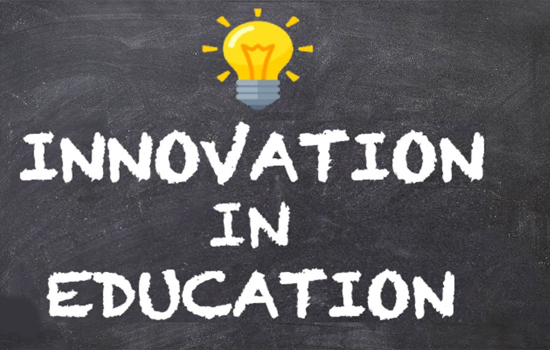
by Site Developer | Aug 13, 2023 | Innovation in Education
In the rapidly evolving landscape of education, where technological advancements and changing methodologies are the new norm, individuals like Nabeesa Ammal are shining examples of how innovation can be harnessed to drive excellence in learning. As an enthusiastic educator and a firm believer in progressive education, Nabeesa Ammal has been at the forefront of embracing innovation to create impactful changes in the way we perceive and deliver education.
The Visionary Mindset
🗼 Innovation in education isn’t just about integrating technology; it’s about fostering a visionary mindset that challenges the traditional paradigms. Nabeesa Ammal understands this fundamental principle well. Her approach revolves around envisioning a dynamic learning environment that prepares students for the challenges of the future, not just the requirements of the present. By thinking beyond textbooks and standardized tests, she encourages a holistic development strategy.
Personalized Learning Journeys
🗼 One size doesn’t fit all, especially in education. Nabeesa Ammal’s innovative approach revolves around personalized learning journeys. She recognizes that each student has a unique set of strengths, weaknesses, and learning styles. Leveraging this insight, she crafts tailored learning experiences that cater to individual needs. Through this approach, students are empowered to explore subjects at their own pace, filling knowledge gaps and excelling in their areas of interest.
Technology as an Enabler, Not a Replacement
🗼 While technology has significantly altered the educational landscape, Nabeesa Ammal emphasizes its role as an enabler, not a replacement. The integration of smart tools and digital resources in her teaching methodology serves to enhance the learning experience. Interactive simulations, virtual field trips, and collaborative online platforms foster engagement and critical thinking. However, she ensures that the essence of human interaction and mentorship remains intact, as they are irreplaceable components of a comprehensive education.
Cultivating Critical Thinking
🗼 Innovation in education isn’t confined to the use of gadgets. It’s about cultivating critical thinking skills that empower students to analyze, question, and innovate. Nabeesa Ammal’s teaching techniques are designed to spark curiosity. She poses open-ended questions, encourages debates, and provides real-world scenarios that require students to think beyond the obvious. This cultivates a generation of problem solvers and innovators rather than passive learners.
Blending Arts and Sciences
🗼 The demarcation between arts and sciences is increasingly blurred in the modern world. Nabeesa Ammal seamlessly blends these domains in her educational approach. Recognizing that creativity fuels innovation, she incorporates arts into the curriculum, allowing students to approach problem-solving from multiple angles. This interdisciplinary approach not only nurtures well-rounded individuals but also reflects the real-world scenarios where innovation often emerges at the intersection of diverse disciplines.
Continuous Learning for Educators
🗼 Innovation doesn’t stop with students; it extends to educators. Nabeesa Ammal is a fervent advocate of continuous professional development. She believes that to nurture innovative thinkers, educators themselves must stay updated with the latest trends and pedagogical approaches. Workshops, seminars, and collaboration with fellow educators enable her to infuse fresh ideas into her teaching strategies continually.
Community Engagement and Real-world Connections
🗼 Nabeesa Ammal’s innovation in education extends beyond the classroom walls. She understands that students thrive when they connect classroom learning to real-world applications. Field trips, guest lectures, and collaborations with local industries provide students with firsthand insights into various professions and challenges. By fostering a strong connection between education and the real world, Nabeesa Ammal empowers students to envision their roles as future change-makers.
Embracing Failure as a Stepping Stone
🗼 Innovation involves risk-taking and, at times, failure. Nabeesa Ammal instills in her students the belief that failure isn’t an endpoint but a stepping stone towards success. By creating a safe space for experimentation, she encourages students to think outside the box, try new approaches, and learn from their mistakes. This resilience and adaptability are qualities that translate into innovative thinking in all aspects of life.
Conclusion
🗼 Nabeesa Ammal’s innovative approach to education is a testament to the fact that the future of learning lies in embracing change and pushing boundaries. Through personalized learning, technology integration, interdisciplinary studies, and fostering critical thinking, she is shaping a generation of thinkers, problem solvers, and visionaries. Her journey exemplifies how educators can harness the power of innovation to create a brighter, more adaptive educational landscape, preparing students not just for the challenges of today, but for the uncharted territories of tomorrow.



